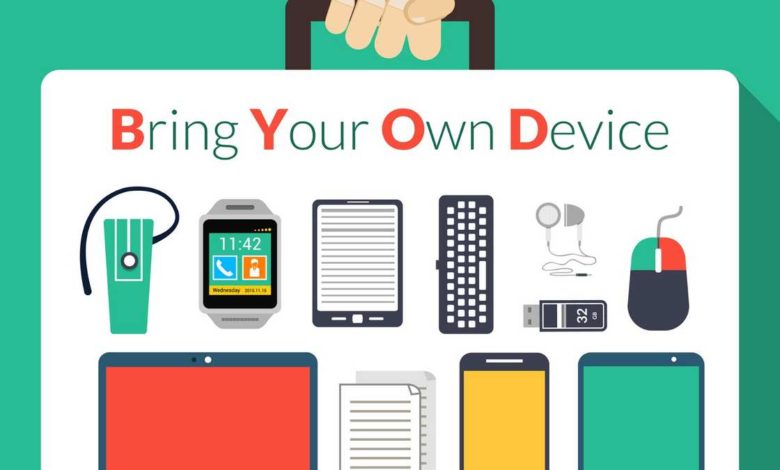
Flexible workplaces and remote working models are more popular than ever because you cannot expect your employees to be tethered to their office desks at all times. As mobility becomes the need of the hour, Bring Your Own Device (BYOD) is emerging as a key business trend. Although it sounds as simple as letting the employees use their personal devices for business, there is much more if you scratch the surface.
The biggest concern is that of data security because you cannot just trust everyone with the confidential data of your business and customers. Obviously, there has to be a proper BYOD policy in place before you let anyone and everyone access business data with their own devices.
For any business that wants to implement BYOD as a part of its operations, the mechanics of a policy can be actually very complex. Unless you have a well-developed one, the risk to the business can be huge. Therefore, it is best to consult an expert for formulating a policy that offers all the security you want. Your in-house IT team may not have the right expertise for it and this is not a risk you can take. Therefore, outsourcing the services of a specialist IT partner makes sense. Here is how they can help you.
Start with risk assessment
As a rule, any process that has security implications for your business must be implemented after a thorough investigation and assessment and this applies to BYOD as well. A reliable IT support partner can do it for you and even make you aware of the potential security pitfalls related to the move. It can play an advisory role and guide you to create mobile device security policies that are good enough to ensure zero possibility of a breach, data loss, and security incidents.
Consider industry-specific regulations
Collaborating with an IT services provider with the right expertise is important to ensure that your policy is compliant with the prevailing industry-specific regulations. It is to be noted that there are diverse security and compliance regulations for different domains, such as HIPAA for healthcare, PCI DSS for retail, etc.
There are some rules that you need to abide by when it comes to allowing data stored on personal devices. Only someone who has the right knowledge can guide you about these regulations and help you prevent the legal implications of non-compliance in the long run.
Create a clear and acceptable device use policy
Basically, people accessing business data and applications with their devices need to know what they can do and cannot do. This is exactly what your BYOD policy is supposed to define and a modern IT support partner can help you come up with clear and acceptable norms. Since personal devices used for the business end up being a part of the company’s infrastructure, you are entitled to some degree of control over them. At the same time, you have to make sure that the policy isn’t overly restrictive at the end of the day.
Protect the BYOD endpoints
When you decide to allow BYOD in your organization, policy alone will not have you covered fully. Apart from developing it, you will have to invest in endpoint protection as well. This is important because employees are human and they can make mistakes. Moreover, you cannot expect every one of them to be honest enough to keep your critical information safe.
Having a managed services partner as a part of your BYOD implementation initiative is a good idea because it can set up effective protection to safeguard your devices and data. There will be access controls to manage unscrupulous users. Additionally, you need not worry about the information being compromised even if devices are lost or stolen.
Employee education and change management
New practices and security policies will serve value to your business only if employees embrace them and are able to use them effectively. Employee resistance can be the biggest challenge when it comes to the implementation of BYOD policy and this is where an IT partner can come to your rescue. From assessing that the policy is not onerous or intrusive to educating employees about the benefits of technology and facilitating change management, they can help your business in more than one way.
A BYOD initiative is certainly a smart move for any business but it will yield the desired benefits only if you do it the right way. An expert IT partner can go a long way in helping you with the strategy and its implementation as well.



